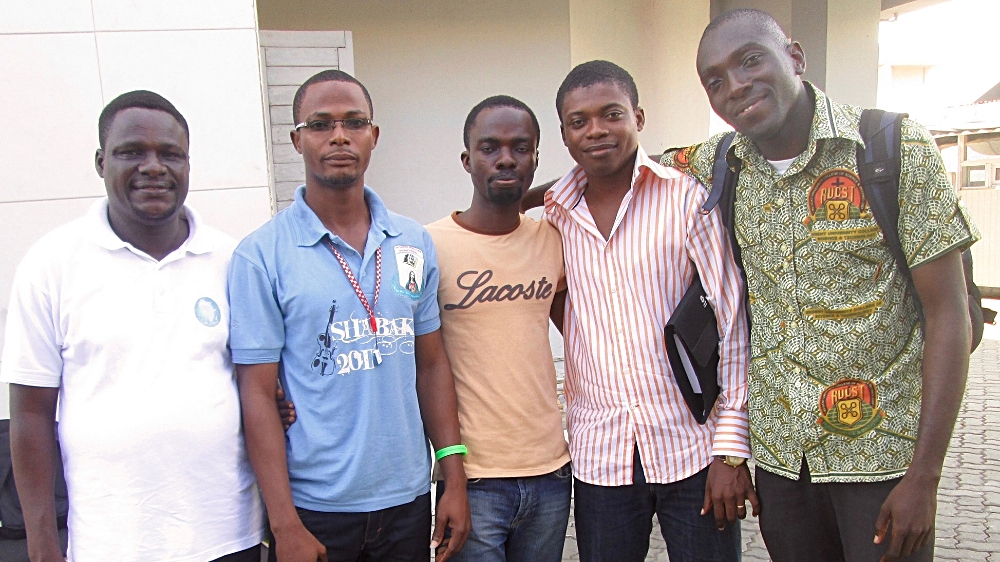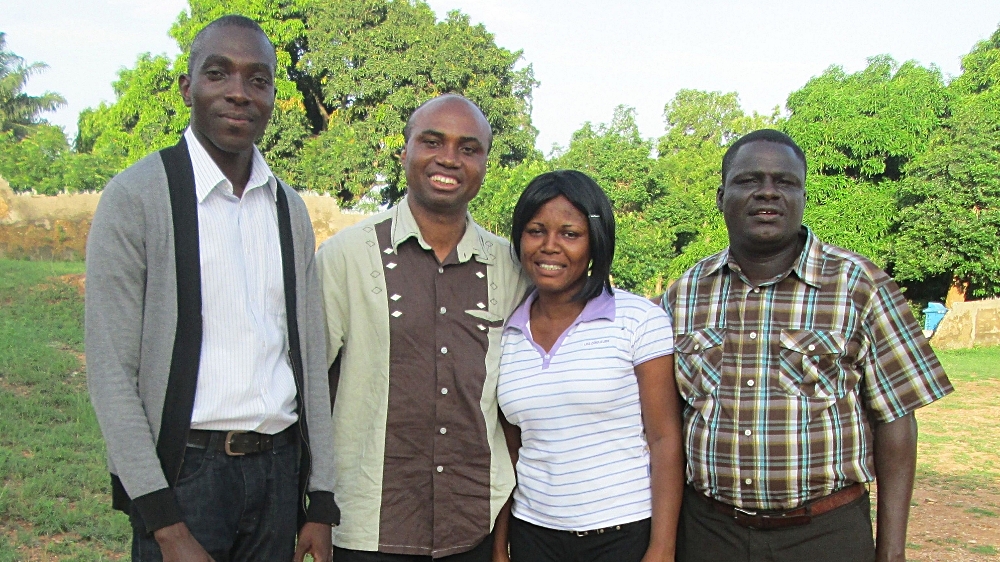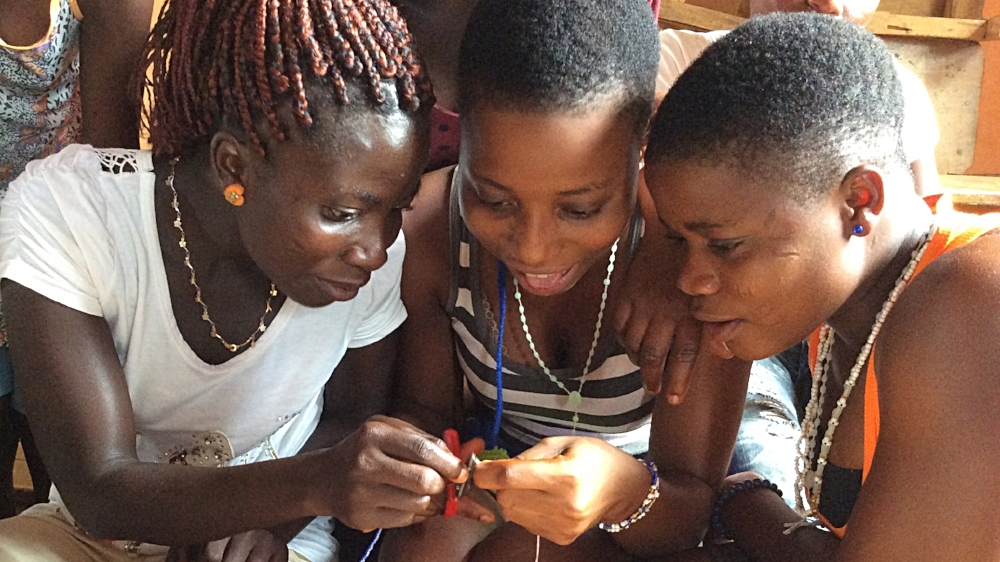It was January 1997 in Osijek in Croatia. I had left Accra (Ghana) as the Regional Director of Youth for Christ and Senior Pastor to study and serve in Croatia. The ceasefire agreement of the war between Croats and Serbs had taken effect, but the area remained volatile. It was cold and snowy. My love for the people was instant; my burden to reach out to the hurting could not be heavier. I knew I had something to give. The buildings in our city were all marked by grenades and bullet holes. The invisible wounds and emotional pain were evident to those who cared to know. Amidst all these were the sweetest kids, resilient teens and kindest of people. I had headaches some days as I pondered the plight of young people, parents left with nothing, and visible images of hopelessness. The language and cultural barrier were real to me. I am limited.
It so happened that a young man with the needed leadership qualities would become my roommate in days. Mario moved in from Zagreb. He spoke English fluently and shared my burden for the people. Mario and I could be there for those who needed listening ears and caring companions if that is all we could give. Mario is enthusiastic, optimistic and selfless. He has the ability to communicate clearly. He mobilized students and participated in the efforts to reach out. He was a young leader whose primary interest was to make a difference in the lives of people. From the second week of my arrival, he would be my translator as we spoke in churches across the region on a weekly basis and visited homes. We would make weekly visits to Bosnian refugees in Gacinci to share our lives and give aid. Some still ask, ‘what makes you so committed to friendship with Mario?’ They do not understand and they would not know it all. Mario was a friend that cared about what I cared so deeply about—a black man and a white man yet we often forgot that we were of different race. Today, I marvel at what we could do in one year of the four years I lived in the region. Slava Bogu!
When those in leadership put an emphasis on product or self, they forget that people make leaders, and leaders are needed for one thing, people. The ‘E’ in my leadership alphabet focuses on the emotional dimension, excitement, and energy that good leaders possess. When leaders nurture the wellbeing of the people they lead, individuals and organizations grow like an evergreen and beautiful plant by the office gate; everyone finds it refreshing as they enter and exit. Let’s consider "E" qualities for the effective, efficient and empathetic leader.
'E' is for Excellence
Excellence is difficult to measure on any scale. Nevertheless, leadership excellence can be felt and experienced. Three key components come to mind: First, the wellbeing of the leader: A leader’s life mirrors his/her public endeavors. Those who use the office as a sanctuary away from personal struggles often leave residues of their pain in the corridors of the workplace. Hurting leaders hurt followers. Insecure leaders create unsafe conditions. Know yourself, accept who you are, and make it a habit of working on becoming a better person each day—a better spouse, friend, parent, colleague, etc. Second, the mood of the people you lead is a good measure of excellence or the lack thereof. High morale and good relationships bring satisfaction. They provide space to develop skills into competencies. When members are excited to show you the next new thing, innovation and casual ‘high five’ gestures are rampant. That is when you know you are getting there. Let’s call it excellence when your team members are highly motivated and unleashed to give their best. Leaders who are loyal to their team develop loyal members for the organization. Leaders who care and respect people earn love and respect. Third, leadership excellence is unwrapped by the process and productivity. These leaders can make people feel good and accelerate growth potential. Productivity levels increase when the leader and team members are excited to do their jobs. Happy leaders lead happy teams. Good leaders create a culture and climate of excellence.
'E' is for Edifying
The ancient Greek word for ‘edify’ literally means ‘to build up.’ It is to encourage, not to destroy. The imagery is that of ‘building an edifice.’ I don’t know if you have ever visited an office in which you found people looking as if they were at a funeral gathering singing the third stanza of a dirge. There are hurting leaders out there who are ruthlessly tearing other people apart inwardly. As a leader, imagine being surrounded by individuals who are shedding tears due to bad experiences in the workplace. Would you care to encourage, comfort and make them count? Many people leave their jobs not because they hate what they do but because they can’t stand their boss. To be a leader who edifies requires intentionality—to be interested in people, to know them individually, and to acknowledge what they contribute to your success. Words of commendation from a leader could be worth more than a bonus check.
I gathered from serving in leadership roles in a few countries that nothing is worth more to people than to know that they are appreciated. Our human tendency, as leaders, is to dwell on mistakes that cost us money. In a healthy work culture, some people would feel bad that they had let you down even before the leaders become aware of the situation. Sometimes eye contact is all that is needed. As someone who did not attend High School, I struggled a great deal in my first semester when I enrolled at Ghana Christian University. Passing the entry exams could not make up the difference. I was an A student who was never comfortable with a B in middle school. I always believed that hard work would pay off. I remember vividly the D+ I got in one of my exams at College. Just imagine! However, I cannot emphasize enough the difference the support of my teachers made. My progress was their joy. They did not know I had jumped over High School yet they inspired and gave me hope to pursue greater heights. Leaders who choose to edify make a real difference. I know that all too well. There is fulfillment in helping others grow and in discovering their God-given potential. Africa has talents waiting to be built up. Dare to inspire, and you will see how the ‘nobody’ becomes the special ‘somebody.’ Be the leader who sees butterflies while others run from the caterpillar. At Africa Potential we see great talents worth investing all we can give.
'E' is for Energetic
The 2016 primaries of the Republican Party in America makes a good case for the public appetite for energetic leadership. Donald Trump successfully labeled an opponent as a ‘no energy’ candidate and provided clues for people to observe how the candidate performs. The result was that the opponent was discredited, the public believed Mr. Trump and party members bought the idea that Jeb Bush was indeed a low energy candidate. Ultimately Mr. Trump became his party’s flagbearer. Energetic leaders have the spark. Leaders ought to love what they do, be good at it and believe in what they produce. Passion, drive or energy are hard to fake. Enthusiastic leaders fuel an energetic team.
Imagine a fifth-grade teacher who knows that the girl in the front row of the class is bound to be the CEO of a fortune one hundred company. That the boy with attention deficit is on track to be a star quarterback in the National Football League (NFL), and that the girl who likes to ask questions is destined to be a Harvard Law Professor in twenty years. How would this affect the drive, attitude, and satisfaction of the teacher? If you can believe in people, a higher purpose, and love what you do then just wait and see the difference you can make. What a privilege to know that the simple helping hand you give today is your participation in ‘the greatness’ of tomorrow. Keep the spark! Keep the flame aglow!
'E' is for Equable
The leader shapes the personality of the organization. Fast speaking, highly caffeinated and highly intolerant leaders are not known for tranquility in their sphere of influence. Steady, temperate and secure leaders are ‘hot’ today. Leaders are humans who carry their struggles with them. However, as leaders, we owe it to our team to check how we allow them to shape our attitude. To be equable is to be consistent and constant. It is to keep calm and serene. Unfortunately, the absence of civility in civilization has made room for prejudice. Learn to treat all people with dignity, and you will send a nonverbal signal that discrimination is intolerable on your watch. As a victim of prejudice, I shared the fate of people who could not count on their leaders to be fair and just. My haters threw every stone at me and laid traps on my path. I could not change my race, and I would not change my faith. But there I found leaders, with no leadership titles, who were just; colleagues who were willing to pay the price for my sake. I was vulnerable as I saw people with leadership titles unwilling to address injustice. They had chosen silence for fear of the perpetrators. As Bonhoeffer put it, ‘silence in the face of evil is evil itself.’ For the sake of the vulnerable, be a leader. For the sake of those from broken homes, make people feel at home. To be equable is a decision accompanied by will-power. The world knows that consistency, tranquility, and integrity are indisputable hallmarks of equable leadership.
'E' is for Empowering
Gone are the days when leaders took it for granted that their task includes equipping and empowering people. Now employers refer to human resources, workforce, or manpower—stripping off the value of persons in the process. The value of people is often measured by what they can do. The 21st-century employee needs more care than most leaders think. Recent graduates need more attention, demand respect and want to know you care. People expect the leader to be a mentor, counselor and, if possible, a friend. It is important to look beyond self to empower others; to create the environment and provide resources to develop talents. The population of many African countries is very young. For the future of the continent and the betterment of our world, leaders need to be proactive in equipping the youngsters. Many young people are eager to seize the opportunity to elevate their contribution to society. To empower, we must dismiss the idea that human destiny is confined by demographics—tribe, ethnicity or race. Get to know people beyond the exterior. The girl/boy in rugged clothes may possess valuable talents. To encourage, you must be ready to be vulnerable—to share your true story. Sharing your weakness is as important as sharing your strengths in the empowering business. The leader must believe that there is no hopeless person. There is only ‘less hope.’ Tell people the good you see in them without neglecting to tell them their shortfalls. Help them to conquer mediocrity without giving them false hopes. Honesty will allow people to see what they possess and what they lack.
The ‘E’ in my leadership alphabet focuses on qualities that are difficult to quantify. These traits are important for your emotional health as well as the wellbeing of your team. Avoid superficiality. Be sincere in your dealings with people. Appreciation appreciates in value; let people know they are valued. It is possible to be direct, caring and tactful as you foster internal cohesion in your team. Leadership is a lifestyle; let’s live it out and build strong teams.






